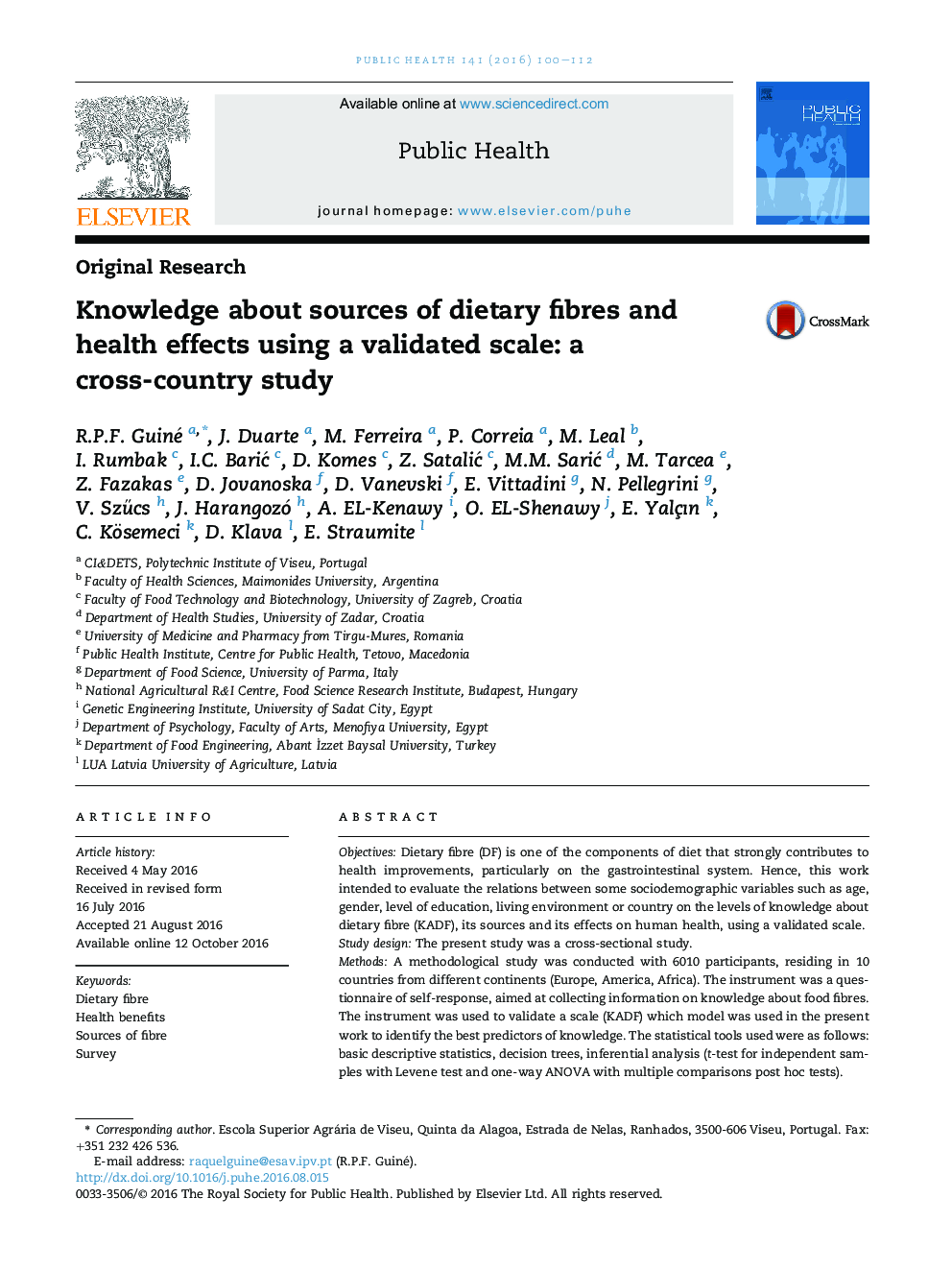| کد مقاله | کد نشریه | سال انتشار | مقاله انگلیسی | نسخه تمام متن |
|---|---|---|---|---|
| 5123080 | 1487202 | 2016 | 13 صفحه PDF | دانلود رایگان |
- Study the knowledge about dietary fibre (KADF), its sources and its effects on human health.
- Use of a scale KADF previously validated by structural equation modelling.
- The best predictor for the three types of knowledge evaluated was always the country.
- Statistically significant differences were found for the three types of knowledge for all sociodemographic variables evaluated.
- When addressing different people, diverse methodologies must be used for effective health education.
ObjectivesDietary fibre (DF) is one of the components of diet that strongly contributes to health improvements, particularly on the gastrointestinal system. Hence, this work intended to evaluate the relations between some sociodemographic variables such as age, gender, level of education, living environment or country on the levels of knowledge about dietary fibre (KADF), its sources and its effects on human health, using a validated scale.Study designThe present study was a cross-sectional study.MethodsA methodological study was conducted with 6010 participants, residing in 10 countries from different continents (Europe, America, Africa). The instrument was a questionnaire of self-response, aimed at collecting information on knowledge about food fibres. The instrument was used to validate a scale (KADF) which model was used in the present work to identify the best predictors of knowledge. The statistical tools used were as follows: basic descriptive statistics, decision trees, inferential analysis (t-test for independent samples with Levene test and one-way ANOVA with multiple comparisons post hoc tests).ResultsThe results showed that the best predictor for the three types of knowledge evaluated (about DF, about its sources and about its effects on human health) was always the country, meaning that the social, cultural and/or political conditions greatly determine the level of knowledge. On the other hand, the tests also showed that statistically significant differences were encountered regarding the three types of knowledge for all sociodemographic variables evaluated: age, gender, level of education, living environment and country.ConclusionsThe results showed that to improve the level of knowledge the actions planned should not be delineated in general as to reach all sectors of the populations, and that in addressing different people, different methodologies must be designed so as to provide an effective health education.
Journal: Public Health - Volume 141, December 2016, Pages 100-112
